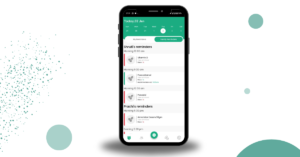An Estimated 50% Of Medication Is Not Taken As Prescribed (World Health Organisation 2003)
Do You Know the Difference Between Adherence & Compliance?
Adherence and Compliance seem interchangeable don’t they?
This is not true…
According to the World Health Organisation medication adherence is “… the extent to which a person’s behaviour– whether taking medication, following a diet, and/or executing lifestyle changes- corresponds with the agreed recommendations from a healthcare provider.”
Adherence is whether the patient takes the correct amount of medication by themselves. In adherence the patient is given control and is empowered. As a result the patient takes matters into their own hands, creating a mutually beneficial situation for the patient and prescriber.
Compliance is doing exactly what the prescriber says. Compliance can be looked at as paternalistic and condescending where the patient plays a passive role.
Medication adherence has shown enhanced treatment outcomes proving it to be beneficial in practice.
Adherence vs Compliance
Adherence– patient following best practice
Compliance- patient follows doctors instructions
Adherence- empowers a patient
Compliance- tells people what to do
What Happens If You Don’t Adhere?
Failure to adherence is a serious problem which affects both the patient and the healthcare system.

1. Non-adherence will limit the benefit that a medication has resulting in a deterioration of the patient’s health condition.
2. Health care costs. These are not only due to the wasted medicines but includes the brought-on costs from increased demands for healthcare if health conditions deteriorate.
What Are the Types of Non-adherence?
There are several types of non-adherence but the majority fall under one of two categories: intentional medication non-adherence and unintentional medication non-adherence.
Unintentional non-adherence happens when the patient wants to take the medications as prescribed but are held back by barriers that are outside their control.
An example of unintentional non-adherence includes carelessness or forgetfulness where the patient forgets to take their medication or to refill their supply and therefore runs out.
Another example would be age-related conditions (dementia) which can lead to a decline in cognitive ability leading to the patient not being able to understand what the prescribed medication is for or what the benefit of taking them would be.
Intentional non-adherence occurs when the patient makes the decision to not follow medications as prescribed.
Most commonly this occurs due to a person’s beliefs, perceptions and preferences impacting their motivation to continue with the medication or even to start it.
Cultural beliefs are an example of why someone may be intentionally non-adherent- the patients may believe in more traditional forms of medication such as herbal remedies and as a result won’t take the medication which they are prescribed.
Low health literacy is a second reason why someone may be intentionally non-adherent, a patient with low health literacy may have an inability to understand the benefits of the given medication or how to even take the medication in the first place.
In many cases embarrassed of their inability to understand means, they don’t ask for assistance.





